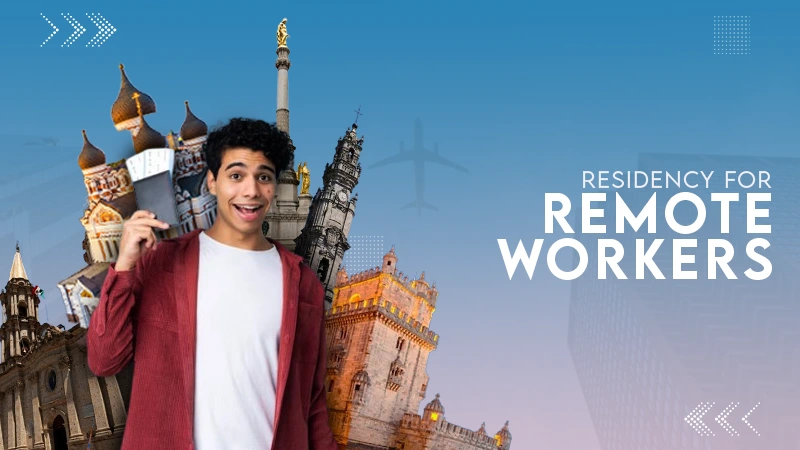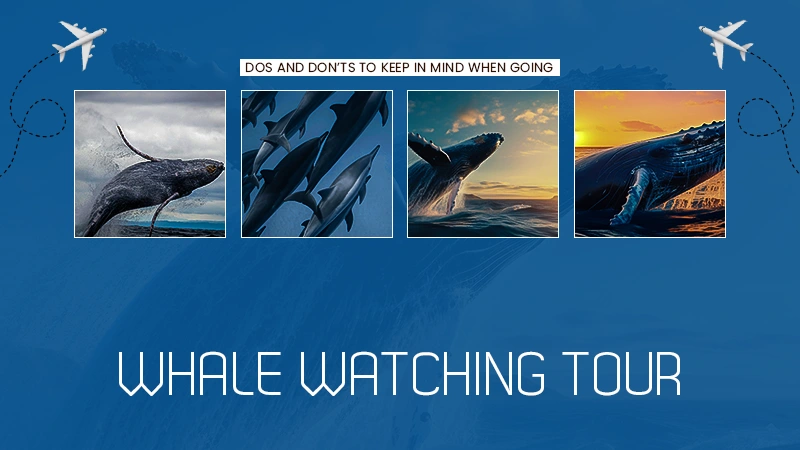
KEY TAKEAWAYS
Discover seven amazing programs for remote workers
Learn about the strategic approaches
Understand practical things before applying for any program
Did you know 97% of remote employees want to continue working remotely until the end of their career? And why wouldn’t they, I mean, who doesn’t want to make their dream come true of working on a tropical beach with a laptop as their office?
The good news is that the percentage of remote work is increasing, and now the world is becoming a welcoming place for digital nomads who want a perfect combination of work and travel-friendly lifestyle.
Are you dreaming of the same lifestyle? Well, congratulations, you are lucky you landed in the right spot. In this article, I will give some amazing and informative information about 7 travel-friendly residency programs. Let’s dive in.
European Digital Nomad Programs: Leading the Way
If you ever travel in Europe, you might know how beautiful this continent is, and now this gorgeous place has many great possibilities for remote workers. Portugal is an amazing choice with two great options.
Portugal: The Digital Nomad Gold Standard: If you apply for the Portugal D7 visa, it will give you a 2-year permit, and you can renew it. The best part is that if you stay here for 5 years and earn a minimum wage of €705 a month, you can get permanent residency.
Spain: A Sun-Soaked Alternative: Spain is Bonita (beautiful). If you get Spain’s digital nomad visa, it will let you stay for 1 year, and you can renew it for up to 2 years. To get this visa, you have to show proof that you are earning at least €2,334 a month, with proof that you are working with companies outside Spain.
Caribbean and Latin American Options: Paradise with Perks
I guess I don’t have to tell you how popular the Caribbean is for its beaches and internet connectivity among many nomads. Here are its two most famous programs:
Barbados: The Pioneer Program: Barbados Welcome Stamp lets you stay for 1 year, and you can renew it. Here, you need to make at least $50,000. Want to know the best part? You don’t have to pay taxes on money you earn from outside Barbados.
Ecuador: The Rising Star: Ecuador’s digital nomad visa started in 2023, and it is popular for its 2-year duration. The thing that makes it different from other programs is that here the income requirement is very low, it’s just $1,350 a month. Also, you don’t need to pay tax on foreign income for one year.
Asian and Middle Eastern Programs: From Ultra-Modern to Tropical Paradise
Want to work in relaxed tropical places? Here are some awesome options for you:
Thailand: The Long-Term Solution: The Thailand long-term resident (LTR) visa lets you stay here for a good 10 years. Requirements are simple: you have to show you are working with a foreign company, and you have to earn 80,000 for a year for the past two years.
Dubai (UAE): Zero Tax Paradise: Dubai remote work visa gives you a 1-year stay, and you can renew it. Here, you need to make at least $5000 a month. You don’t need to pay any tax here.
Indonesia: Beyond Bali: Indonesia’s digital nomad visa started in 2023. It lets you stay here for 5 years. In Indonesia, you just need to make $2000 a month. And you don’t need to pay tax on foreign income.
Strategic Approaches to Global Mobility
Many remote workers choose different places to manage taxes and enjoy a better travelling life. Experts such as the Global Residence Index can help you understand these choices.
Many remote workers stay in the EU, and during the cold months, they start travelling to places like Thailand for a more tropical feel.
Like any smart remote worker, you can also do a little research on places with more favorable tax policies.
Using these smart approaches can help you in your journey as a digital nomad.
Wrap Up!
If you love traveling but can’t miss work as well, become a digital nomad. You can choose from the 7 amazing programs I just shared with you. But before you pack your bags, you should keep a few practical things in mind, like the quality of the place (good internet connection) and cost of living, because some places are affordable and others are quite pricey.
In the end, it’s all about finding the right place. So grab your laptop and explore the world without ruining your career.
Which is the easiest nomad visa to get?
Portugal’s nomad visas are often easiest to get compared to others.
Is there any eligibility criteria for a nomad visa?
Generally, you have to prove your stable income from a foreign country, a freelancing contract, or your own business.
What is the cheapest country to live as a digital nomad?
Many people consider Vietnam as the cheapest country for remote workers.
Is there an age limit for digital nomad visas?
There is no universal age limit, but most countries require applicants to be at least 18 years old.











